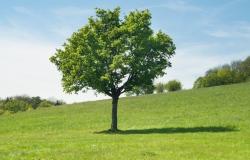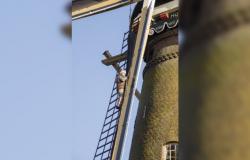Researchers conclude that there are probably too few insects to pollinate plants in the Netherlands, and that is disturbing news.
The researchers base their conclusions on an analysis of measurements carried out over 87 years at more than 365,000 locations in the Netherlands. “We looked at the different plant species, but also at factors such as nitrogen, humidity and acidity of the soil and combined that with data on insects,” says researcher Geert de Snoo. “That combination and the large time scale make this research unique.”
Risk to biodiversity
The fact that plants are losing their pollinators is disturbing news: after all, the majority of plants in the Netherlands are dependent on pollination by insects. “We see that the number of insect-pollinated plant species is decreasing, while the number of wind-pollinated species is increasing,” says researcher Kaixuan Pan. “There are therefore fewer and fewer insect-pollinated plants.”
If these plants disappear from our landscape, it could be catastrophic for biodiversity in the Netherlands. Not only are there fewer plant species left, but there are also fewer seeds and fruits for birds and other animals. Pan warns of one “strong decline in biodiversity”.
Food security
The researchers emphasize that the majority of our food (75 percent) comes from plants that are pollinated by insects. “If we lose these species, it will threaten food security”.
Why are there too few pollinators?
After previous research showing that the population of insects in our country is declining, it seemed logical that plants that depend on these insects for pollination would also feel the consequences in the long term. But is the decline in insect-pollinated plants really only due to the decline in insects? The researchers suggest so.
Of course, there are other possible causes for the decline in insect-pollinated plants, such as an increase in nitrogen. But such factors often affect both wind-pollinated and insect-pollinated plants. What the researchers show in their study is that the number of insect-pollinated plants decreases, while the number of wind-pollinated plants increases. Pan: “That difference is most likely due to a lack of pollination: there are no longer enough pollinators to fertilize these plants (the insect-pollinated plants, ed.).”
The researchers argue for limiting nitrogen emissions. “If we ensure that less of it ends up in nature, it can help local plants and insects.” In addition, it is important to better protect natural grasslands, which are often rich in insect-pollinated plant species.
Koos Biesmeijer adds that it is important to monitor all protective measures to see whether they have the desired effect. “Both on the insects and the plants, because they are mutually dependent.”
The information in this article is based on research from the Journal of Applied Ecology






